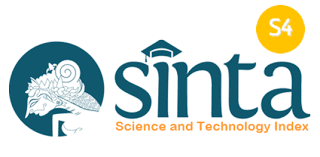An Empirical Bond between Learner Autonomy and Well-being
a Vocational Students' Perspective
Abstract
Autonomous learning was reported to be very helpful in distance learning because it helped the students to understand the lesson without direct guidance from the teacher and decided to learn with their learning styles which allow them to maximize learning. Yet, students’ well-being is essential to reveal as it can be one of the indicators which can be taken into account on measuring the workload of students enrolling in the vocational state-owned institution. Therefore, this study is eager to reveal the relation between learner autonomy and well-being. The instrument which will be occupied in this study is a survey which derived from the various well-established scales in the literature, and then the back-translation method was used to produce a version in Bahasa Indonesia. All students of the polytechnic will be asked to participate in this study. Further results of this study will be processed with SPSS 25 version and AMOSS supported by additional sources from documents in the polytechnic. This study portrayed a significant relation between learner autonomy and wellbeing in terms of academic performance.
Downloads
Copyright (c) 2022 Ainun Fikria, Akhyat Hilmi, Irma Zulaiha

This work is licensed under a Creative Commons Attribution-ShareAlike 4.0 International License.








